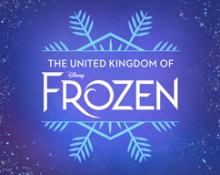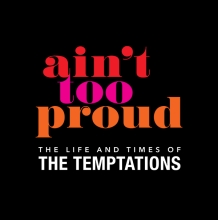Full Synopsis
Full Synopsis
Act One
The lights come up on four people standing in front of "Doors." They are modern, timeless, urban, hip, sophisticated, lost, and awestruck by the overwhelming choices before them.
The closed doors of unrequited love show us one man who bemoans unreturned affections. The lady in question pines after another man, who, it seems, yearns for the first man ("She Loves Me Not"). A man tells a woman she's a goddess then proceeds to break up with her and, not surprisingly, the woman responds tersely ("You Want To Be My Friend?"). An obsession with a woman drives a man to do crazy things. He resolves to stop, but then misses his obsessive behavior when he does stop ("What Am I Doing?"). After one too many bad relationships, a female zoologist resolves to be more like female animals that need the male species to reproduce and nothing more ("The Bear, The Tiger, The Hamster and The Mole").
The rigors of being a father and husband are solved with a simple solution ("I'll Get Up Tomorrow Morning"). A seemingly quiet, shy, unnoticed woman has a sexy secret to tell…but she's not saying a thing ("Miss Byrd").
Newly-divorced people in their forties rejoin the singles pool ("Dating Again"). The longings for lives he could have led makes a man realize that even if those longings are a given, he has happily made his choice ("One Of The Good Guys"). An obsession with staying young makes physical exercise a seeming necessity and even though painful, the end result will be worth it ("There's Nothing Like It"). In a bittersweet recounting, a woman surrenders to the life she's lived, without complaining ("Life Story").
Doors opening and closing, good and bad choices, happy and sad times—the ups and downs of life and love make us ever-hopeful for something better ("Next Time"). We continue opening and closing doors on the positive and the negative, but in the long run, wouldn't change a thing ("I Wouldn't Go Back").
Act Two
As we begin Act II, doors continue opening and closing as three college friends grow up and grow apart, but work to remain connected ("Three Friends"). A career-obsessed couple has trouble compromising their work for the sake of their baby ("Fandango"). Another couple comes apart because the man is not "There" for his wife until it's too late. A woman in a mid-life dilemma is troubled by feelings of unrest, yet in the end, takes comfort in her surroundings ("Patterns").
Doors open on an ode to weddings ("There is Something in a Wedding") A man and woman each venture into a second marriage (to each other) with a lovely, philosophical outlook ("Another Wedding Song"). With great pride and joy, a man pays tribute to his father—who taught him the love of music and life in general ("If I Sing") and a woman pays a jazzy, tongue-in-cheek tribute to her bass-playing boyfriend ("Back On Base").
Transitional doors show us that getting older is inevitable. Facing all the changes that happen along the way can be scary and frustrating—yet we move forward ("The March of Time"). The legacy and life cycle between parents and children is sweetly reflected by the men in "Fathers Of Fathers." The heartbreak of love, both lasting and fleeting, is shared by the women in "It's Never That Easy/I've Been Here Before."
Finally, some doors that have been locked open up and shed light on the trials, hopes, joys and pains that other doors have exposed. Whether opened or closed, these doors "can only make us stronger than ever, clearer than ever…'Closer Than Ever.'"




